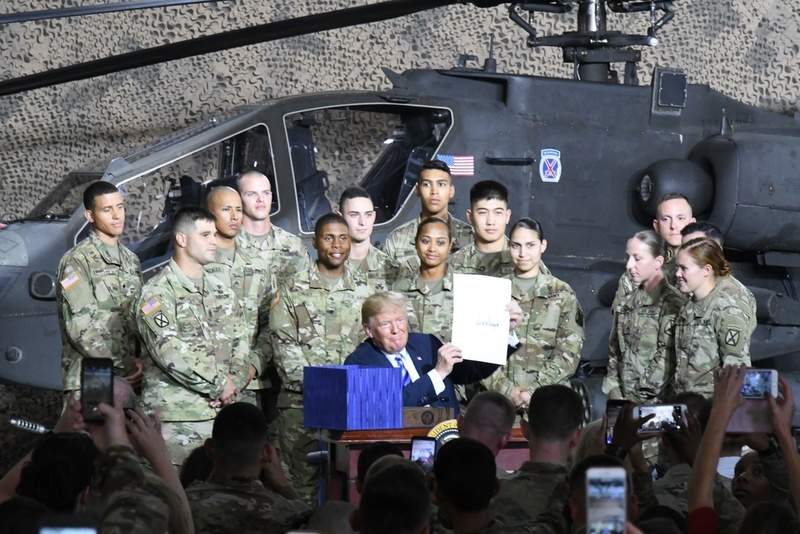
Since the onset of the Covid-19 coronavirus pandemic, US President Donald Trump has been criticised for not invoking the DPA earlier. Since March, however, the law has been used to compel General Motors to build ventilators for the US Government and mandate companies like 3M to expand their production of N95 respirator masks. The law has its legislative roots in the War Powers Act of WWII.
Announcing the use of the act in early April, Trump said: “Today, I have issued an order under the Defense Production Act to more fully ensure that domestic manufacturers can produce ventilators needed to save American lives. My order to the Secretary of Health and Human Services and the Secretary of Homeland Security will help domestic manufacturers like General Electric, Hill-Rom, Medtronic, ResMed, Royal Philips, and Vyaire Medical secure the supplies they need to build ventilators needed to defeat the virus.
“I am grateful to these and other domestic manufacturers for ramping up their production of ventilators during this difficult time. Today’s order will save lives by removing obstacles in the supply chain that threaten the rapid production of ventilators.”
Passed in 1950 and renewed ever since, the DPA was created for the president to direct companies and resources to support national security. The act serves a similar purpose to the WWII-era War Production Board that was created to convert peacetime industries into factories to support the war effort.
According to a report from the Congressional Research Service, the DPA “confers upon the President a broad set of authorities to influence domestic industry in the interest of national defence. The authorities can be used across the federal government to shape the domestic industrial base so that, when called upon, it is capable of providing essential materials and goods needed for the national defence.”
Over the years, the scope of the act has expanded alongside the definition of ‘national defence’ going from focused on wartime preparations to factor in assisting in the response to terrorist attacks, natural disasters and general civil preparedness.
How well do you really know your competitors?
Access the most comprehensive Company Profiles on the market, powered by GlobalData. Save hours of research. Gain competitive edge.

Thank you!
Your download email will arrive shortly
Not ready to buy yet? Download a free sample
We are confident about the unique quality of our Company Profiles. However, we want you to make the most beneficial decision for your business, so we offer a free sample that you can download by submitting the below form
By GlobalDataUnder the act, the US Government can require businesses to accept and prioritise contracts that are in the national interest – such as the production of ventilators – incentivise the expansion of supply chains through loans and other measures, and can be used to block pending mergers, establish voluntary agreements with private companies and set up ‘volunteer’ pools of industry executives to support the government.
Past examples of the act’s use include work on Air Force One (VC-25A) the B-2 Bomber and the Mine Resistant Ambush Protected (MRAP) vehicle. In the past, the act was also used by the Obama administration to compel telecoms providers to reveal information on their networks to help the US Government prevent espionage from China.







